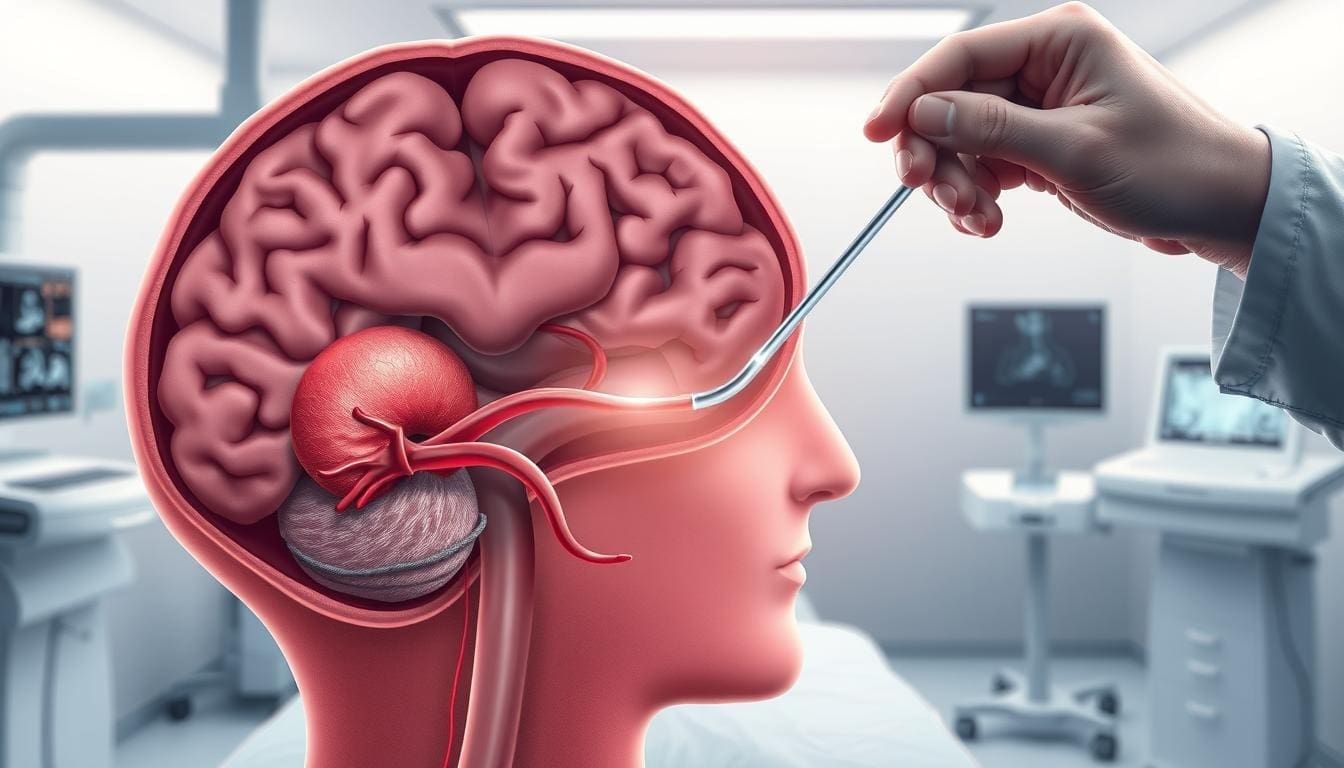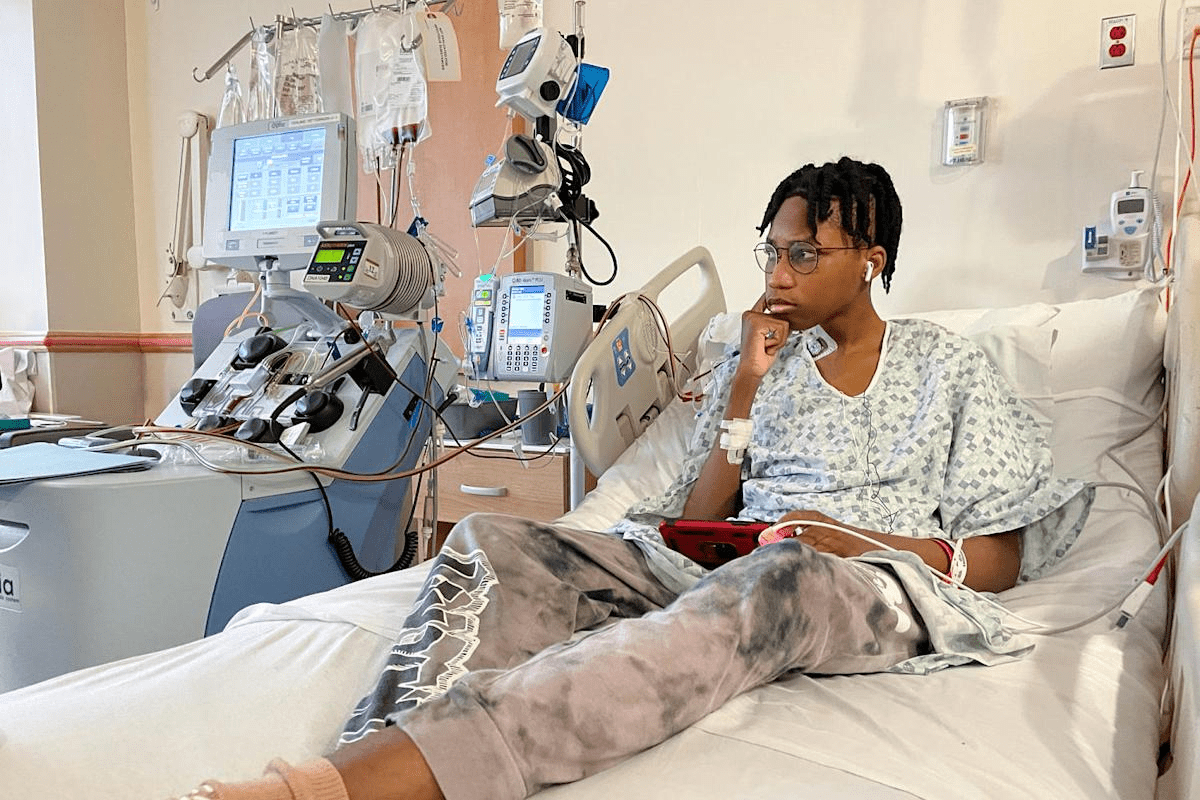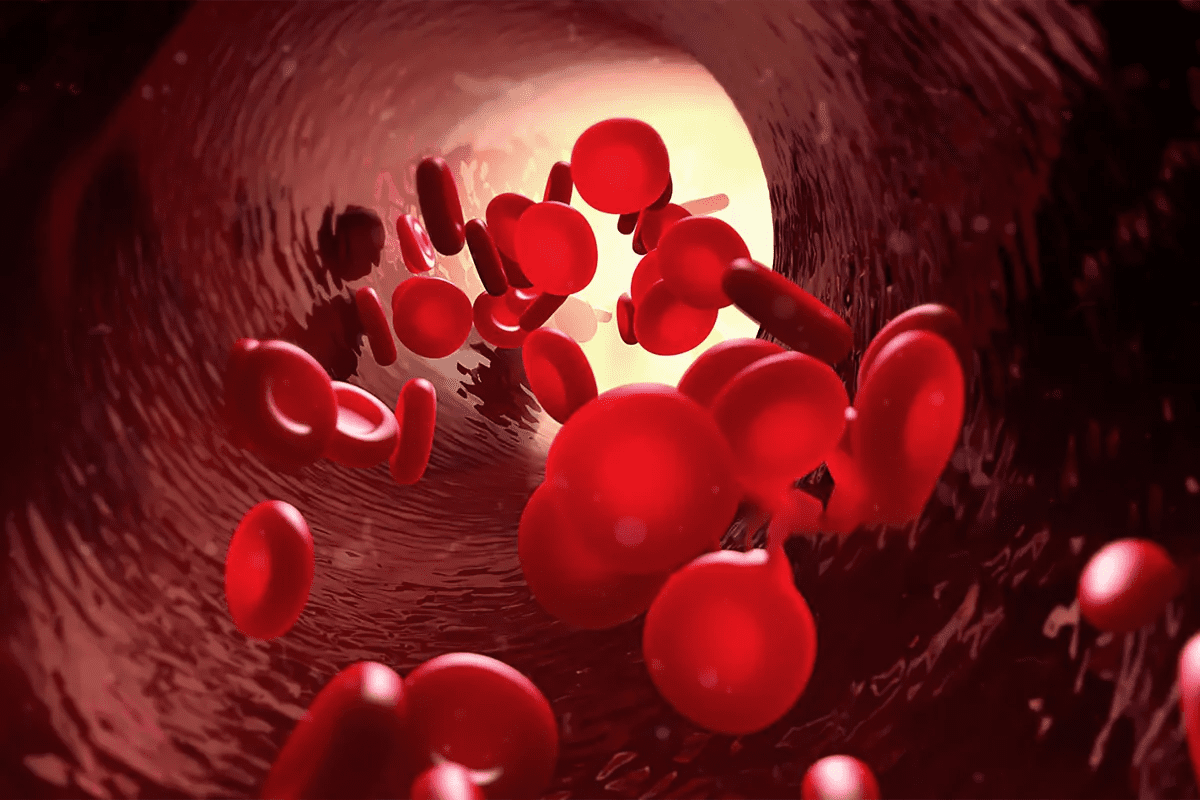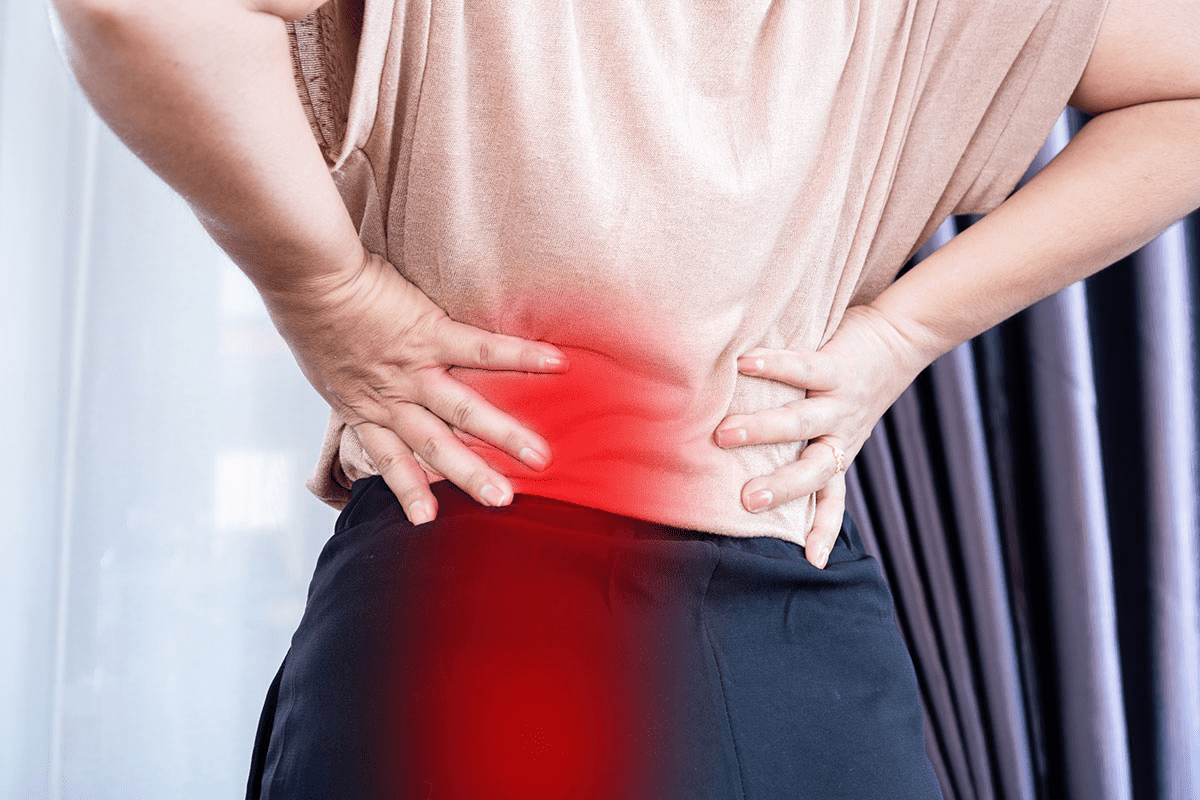Last Updated on November 27, 2025 by Bilal Hasdemir
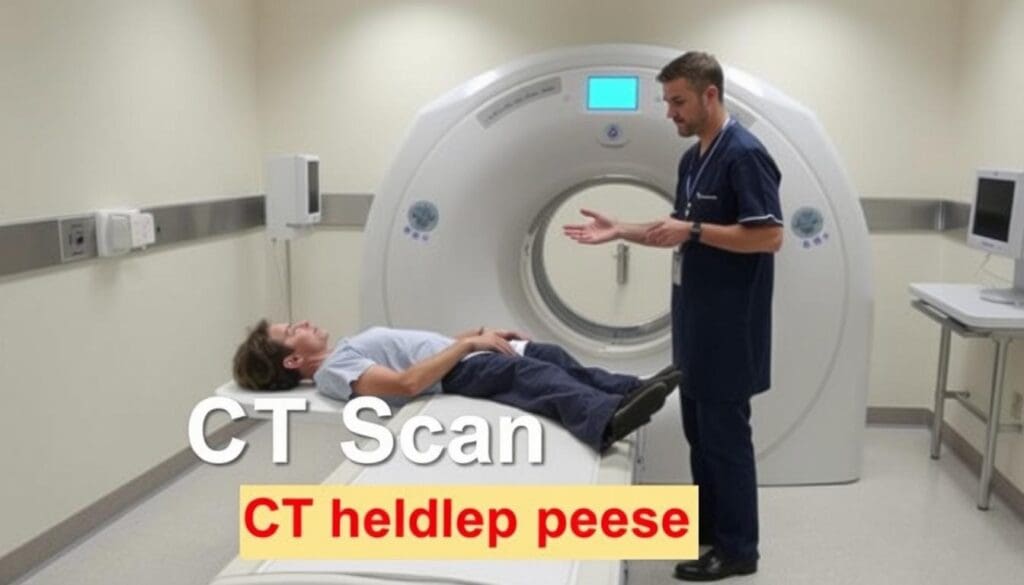
Getting ready for a CT scan can be tricky, especially when figuring out what to eat and drink before. Many patients ask can i drink water before ct scan with contrast. At LivHospital, we offer clear advice: drinking water before a CT scan with contrast is generally allowed and encouraged to stay hydrated, but you should avoid solid foods for a few hours prior as instructed.
For a CT scan of the abdomen, you usually need to fast for 3 to 4 hours if you’re getting IV or oral contrast. Radiology experts say you might be okay to drink water before the scan, but always check with your doctor first.
Knowing what to do before a CT scan is key to getting good results and a hassle-free test.
Key Takeaways
- Fasting for 3 to 4 hours is usually needed before an abdominal CT scan with contrast.
- You might be able to drink water before a CT scan with contrast, but always listen to your doctor.
- Guidelines from places like Liv Hospital can make preparing for a CT scan easier.
- Preparation needs can change based on the CT scan type and contrast use.
- Following the prep instructions carefully is important for getting accurate CT scan results.
Understanding CT Scans and Contrast Agents
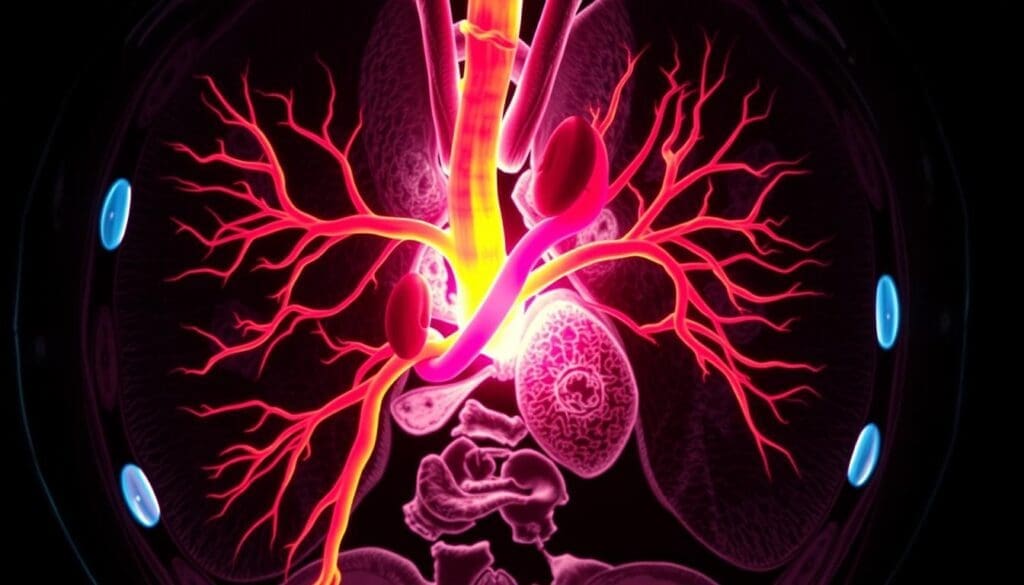
Computed Tomography (CT) scans are key in medical imaging. Knowing how they work is vital for those preparing for a scan. CT scans combine many X-ray measurements from different angles. This creates detailed images of the body, helping doctors make accurate diagnoses.
What is a CT Scan and How Does It Work?
A CT scan uses X-rays to show the inside of the body. The scanner moves around the patient, capturing data. A computer then turns this data into images. This tech is great for checking internal organs, bones, and soft tissues.
Types of Contrast Agents Used in Medical Imaging
Contrast agents make body structures clearer in medical images. There are several types:
- Iodine-based contrast agents: Used in CT scans, these agents contain iodine. They make blood vessels and other structures visible.
- Barium-based contrast agents: For certain X-ray exams, barium sulfate is used. It helps see the digestive tract.
- Gadololinium-based contrast agents: Mainly for MRI scans, these agents make MRI images clearer.
For CT scans, iodine-based agents are given through an IV or orally, depending on the exam.
Why Contrast Agents Improve Diagnostic Accuracy
Contrast agents make CT scans more accurate. They highlight specific body areas. This makes it easier to spot problems like tumors or inflammation.
“The use of contrast agents in CT scans has revolutionized the field of diagnostic imaging, enabling healthcare professionals to make more accurate diagnoses and develop targeted treatment plans.”
Dr. Jane Smith, Radiologist
The table below shows the benefits of contrast agents in CT scans:
| Benefit | Description |
| Enhanced Image Clarity | Contrast agents improve the visibility of internal structures. |
| Improved Diagnostic Accuracy | By highlighting specific areas, contrast agents aid in identifying abnormalities. |
| Better Treatment Planning | Accurate diagnoses facilitated by contrast agents enable targeted treatment strategies. |
General Preparation Guidelines for CT Scans
When you’re getting ready for a CT scan, it’s key to follow certain steps. This makes sure the scan goes well and you’re comfortable and safe. Good preparation also helps get clear images.
Standard Pre-Scan Instructions
Before your CT scan, you’ll get specific instructions. These might include:
- Removing jewelry, glasses, and any metal objects that could interfere with the scan
- Changing into a hospital gown to ensure comfort and safety during the procedure
- Following specific dietary instructions, such as fasting or consuming a contrast agent
It’s important to follow these instructions closely. This helps avoid any issues during the scan.
Items to Bring to Your Appointment
To make your CT scan appointment go smoothly, bring these items:
- Any relevant medical records or previous imaging studies
- A list of current medications and dosages
- Insurance cards and identification
- Comfortable clothing that is easy to remove, if not provided with a hospital gown
Having these items ready can reduce stress and make things more efficient.
Appropriate Clothing and Accessories for the Procedure
Wear comfortable, loose-fitting clothes that are easy to take off. Avoid clothes with metal parts, like zippers or buttons, as they might need to be removed.
In some cases, you might get a hospital gown to wear. This ensures your clothes don’t get in the way of the scan. It also makes it easier to give you the contrast agent, if needed.
By following these guidelines, you can make your CT scan experience better. Always check with your healthcare provider for specific instructions for your scan.
Can I Drink Water Before a CT Scan With Contrast?
Many patients wonder if they can drink water before a CT scan with contrast. The answer depends on several things. These include the medical facility’s rules and the contrast agent type.
Facility-Specific Protocols on Water Consumption
Medical facilities have different rules about drinking water before a CT scan. Some let you drink water until the scan, while others ask you to fast or limit fluids.
Always follow the exact instructions from your healthcare provider or the facility for your CT scan. They know the latest and best rules for you.
Timing Considerations for Water Intake
When to drink water before a CT scan is important. Sometimes, you can drink water until just before the scan. Other times, you might need to stop drinking hours earlier.
- Ask your healthcare provider about when to stop drinking water.
- The timing can change based on the CT scan type and contrast agent.
Medical Reasons Behind Water Restrictions
Restricting water or food before a CT scan helps the contrast agent work better. Drinking or eating too close to the scan can mess with how the contrast agent is absorbed. This can make the scan images less clear.
| Reason for Restriction | Description |
| Contrast Agent Absorption | Drinking or eating can change how the body absorbs the contrast agent. |
| Image Quality | Good absorption of the contrast agent is key for clear, useful images. |
| Patient Preparation | Following instructions carefully makes the CT scan safer and more effective. |
In summary, whether you can drink water before a CT scan with contrast depends on the rules from your healthcare provider or the facility. It’s important to follow their advice to get the best results from your scan.
Fasting Requirements for Different Types of CT Scans
The need and length of fasting for a CT scan change based on the scan type and contrast use. Fasting needs differ greatly depending on the CT scan type and whether a contrast agent is used.
Abdominal CT Scan Fasting Guidelines
For an abdominal CT scan, fasting is key to getting clear images of the organs inside. Patients usually need to fast for 4 to 6 hours before the scan. But, this time can change based on the facility’s rules and contrast use.
- Fasting Duration: Usually 4 to 6 hours.
- Contrast Use: May need extra prep, like drinking oral contrast.
Chest and Pelvic CT Scan Preparation
Chest and pelvic CT scans might not need as much fasting as abdominal scans. But, this can also vary. Some places might not ask for fasting unless contrast is used.
- If contrast is used, fasting for 2 to 4 hours might be needed.
- Always follow the exact instructions from your healthcare provider or the imaging center.
Head and Neck CT Scan Requirements
Head and neck CT scans usually don’t need fasting. Food or liquid in the stomach won’t affect the scan images. But it’s important to listen to your healthcare provider’s specific instructions.
- No Fasting Required: Usually, no fasting is needed for head and neck scans.
- Contrast Use: If contrast is used, there might be special instructions for its use.
In conclusion, knowing the fasting needs for your CT scan is very important for a good outcome. Always follow the directions from your healthcare provider or the imaging center for the best results.
Preparation for Abdomen CT Scan: A Detailed Guide
To get the best results from an abdominal CT scan, patients need to follow a detailed guide. This guide is key to getting clear and reliable images.
Timeline for Fasting Before Abdominal Imaging
Fasting before an abdominal CT scan is often needed. It helps ensure the images are clear, without food or drink in the stomach. The fasting time can be 2 to 4 hours, depending on the facility’s instructions.
It’s important to follow these instructions closely. This avoids any issues or the need to reschedule the scan.
Medications and Abdominal CT Preparation
Most patients can keep taking their medications as usual before the scan. But, it’s important to tell the healthcare provider about all medications, including supplements and contrast agents. Some medications might need to be adjusted or stopped before the scan.
It’s vital to discuss your medication regimen with your doctor to understand any specific requirements or adjustments needed for the scan.
Special Considerations for Diabetic Patients
Diabetic patients need special care when preparing for an abdominal CT scan. This is because the contrast agent can affect kidney function. In some cases, metformin might need to be stopped temporarily to avoid lactic acidosis.
Diabetic patients should closely follow the specific instructions provided by their healthcare provider regarding their medication and any other necessary preparations for the scan.
By following the preparation guidelines carefully, patients can help ensure their abdominal CT scan is safe and effective. This provides the diagnostic team with the clearest images for an accurate diagnosis.
Oral Contrast for CT Scans: What to Expect
Oral contrast agents are key in CT scans. They help make the gastrointestinal tract stand out in images. These agents are drinks taken before the scan to show different parts of the abdomen.
Types of Oral Contrast Agents
There are many types of oral contrast agents for CT scans. Each has its own features. The most common include:
- Barium sulfate suspensions
- Iodine-based contrast agents
- Mannitol or sorbitol solutions
Each agent is used for different parts of the gut and patient conditions.
Drinking Protocol and Timing for Oral Contrast
The rules for drinking oral contrast vary. It depends on the facility and the CT scan type. Patients usually drink it 30 minutes to several hours before the scan.
The exact timing and amount will be told by the healthcare team or the radiology department.
| Type of CT Scan | Timing for Oral Contrast Consumption | Amount of Oral Contrast |
| Abdominal CT Scan | 1-2 hours before the scan | 1000-1500 ml |
| Pelvic CT Scan | 30-60 minutes before the scan | 500-1000 ml |
Taste, Consistency, and Tips for Consumption
Oral contrast agents can taste bad and feel weird. This can be hard for some people. Here are tips to help:
- Chill the contrast agent in the refrigerator before drinking.
- Drink it through a straw.
- Drink small amounts to avoid gagging.
It’s important to follow the healthcare team’s instructions. This ensures the best results for the CT scan.
Intravenous (IV) Contrast: Administration and Safety
Administering IV contrast during a CT scan is a key step that needs careful attention to patient safety. IV contrast agents help make body structures or fluids clearer in medical images.
Administration Process
IV contrast is given through a vein, usually in the arm, via an intravenous line. A trained healthcare professional does this.
Key aspects of IV contrast administration include:
- Using a sterile technique to minimize the risk of infection
- Monitoring the patient for any adverse reactions
- Adjusting the dosage based on the patient’s weight and medical condition
Potential Reactions and Allergies
While IV contrast is generally safe, there’s a risk of adverse reactions. These can range from mild to severe. Common reactions include:
- Nausea and vomiting
- Hives or itching
- Headache
In rare cases, severe reactions like anaphylaxis can happen. Patients need to tell their healthcare providers about any allergies or past reactions to contrast agents.
Kidney Function and IV Contrast Safety
Those with kidney disease are at higher risk of contrast-induced nephropathy (CIN). This is when the contrast agent harms the kidneys. To lower this risk:
| Precaution | Description |
| Assessing kidney function | Doing blood tests to check kidney function before giving IV contrast |
| Hydration | Making sure the patient is well-hydrated before and after the procedure |
| Monitoring | Keeping a close eye on the patient’s kidney function after the procedure |
Understanding the IV contrast administration process and its risks helps healthcare providers ensure patient safety during CT scans.
Duration and Procedure: What to Expect During Your CT Scan
Before your CT scan, knowing what to expect can help. It can make you feel less anxious and make the process easier.
Length of Different Types of CT Scans
How long a CT scan takes varies. It depends on the scan type and the body area being checked. Scans can last from a few minutes to an hour.
Scans without contrast are usually quicker. For example, a head or spine scan might take 5 to 10 minutes. But scans of the abdomen or pelvis could take 30 minutes or more.
The CT Scanning Process Step by Step
Knowing the CT scan steps can make it clearer. Here’s what happens:
- Preparation: You’ll change into a hospital gown and remove metal objects or jewelry.
- Positioning: You’ll lie on a table that slides into the CT scanner.
- Contrast Administration (if required): Contrast dye may be given orally or through an IV.
- Scanning: The table will move into the scanner, and the scan will be performed.
- Breath-Holding (if necessary): You might need to hold your breath for a few seconds.
Post-Scan Recovery and Follow-up Instructions
After the scan, you can usually go back to normal activities. If you had contrast dye, you would be watched for any bad reactions.
Follow-up instructions typically include:
- Drinking plenty of fluids helps flush out the contrast dye.
- Monitor for any signs of an allergic reaction.
- Follow up with your doctor to discuss the results.
It’s important to follow these instructions. They help keep you safe and ensure accurate scan results.
Conclusion: Ensuring the Best Results for Your CT Scan
Getting ready for a CT scan is key to getting great images. The prep steps change based on the scan type and your doctor’s advice.
For an abdominal CT scan, listen to your doctor’s instructions carefully. You might need to fast, skip some meds, or follow other steps to get the best results.
Knowing how to prepare for a CT scan can really help. It lets your doctor get clear images. This helps them make a correct diagnosis and plan your treatment.
Before your CT scan, ask your doctor what you should do to prepare. Following their advice helps make the procedure go smoothly and successfully.
FAQ
Can I drink water before a CT scan with contrast?
It depends on the facility’s rules and the type of CT scan. Some places let you drink water before a scan with contrast. Others have strict rules.
Do I need to fast before a CT scan?
Fasting rules change based on the CT scan type and contrast use. For example, you might need to fast for an abdominal scan but not for a head or neck scan.
What is the preparation for an abdominal CT scan?
For an abdominal CT scan, you usually need to fast for 2 to 4 hours. You might also drink special contrast agents to see the abdominal area better.
Can I take my medications before a CT scan?
Usually, you can keep taking your meds as usual before a CT scan. But tell your doctor about any meds, including those for a scan with contrast.
What are the risks associated with IV contrast?
IV contrast can cause allergic reactions. It might also harm your kidneys. Your doctor will check your kidney health before using IV contrast.
How long does a CT scan take?
CT scan time varies by scan type and area. It can take from a few minutes to about 30 minutes.
What should I wear to a CT scan?
Wear loose, comfy clothes. Avoid jewelry or clothes with metal to prevent scan interference.
Can I eat or drink after a CT scan?
You can usually eat and drink normally after a CT scan, unless your doctor says not to.
How do I prepare for a CT scan with oral contrast?
Drink oral contrast before the scan. The timing and amount depend on the facility’s rules. Be ready for its taste and texture.
Are there any special considerations for diabetic patients undergoing a CT scan?
Diabetics might need to adjust their meds or fasting before a CT scan. Tell your doctor about your diabetes and meds.
References
- Tay, C. T. (2025). Key standards and principles for developing evidence-based clinical guidelines. International Journal of Nursing Studies, 150, 104555. https://www.sciencedirect.com/science/article/pii/S0015028225000500


